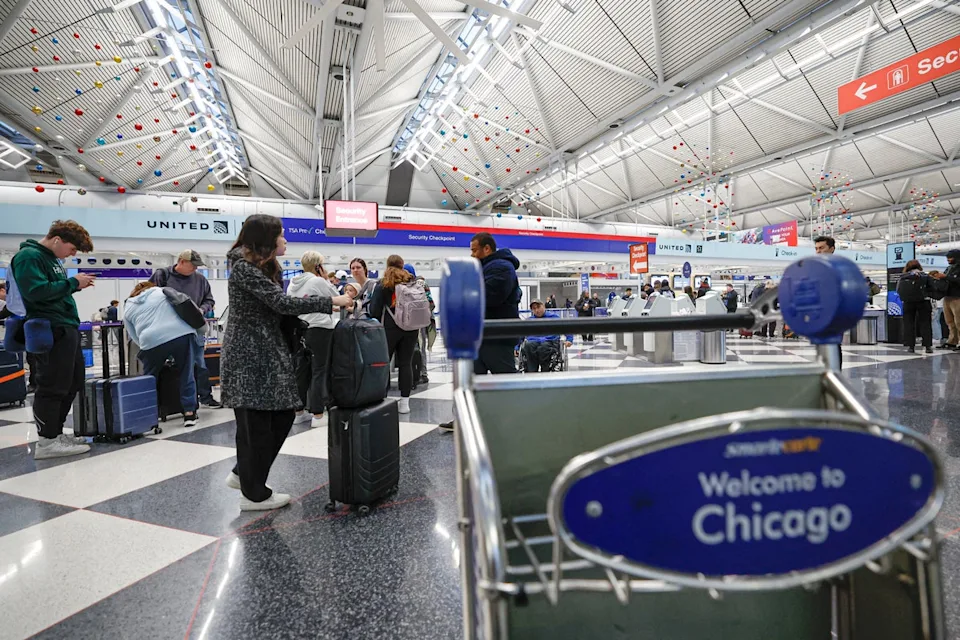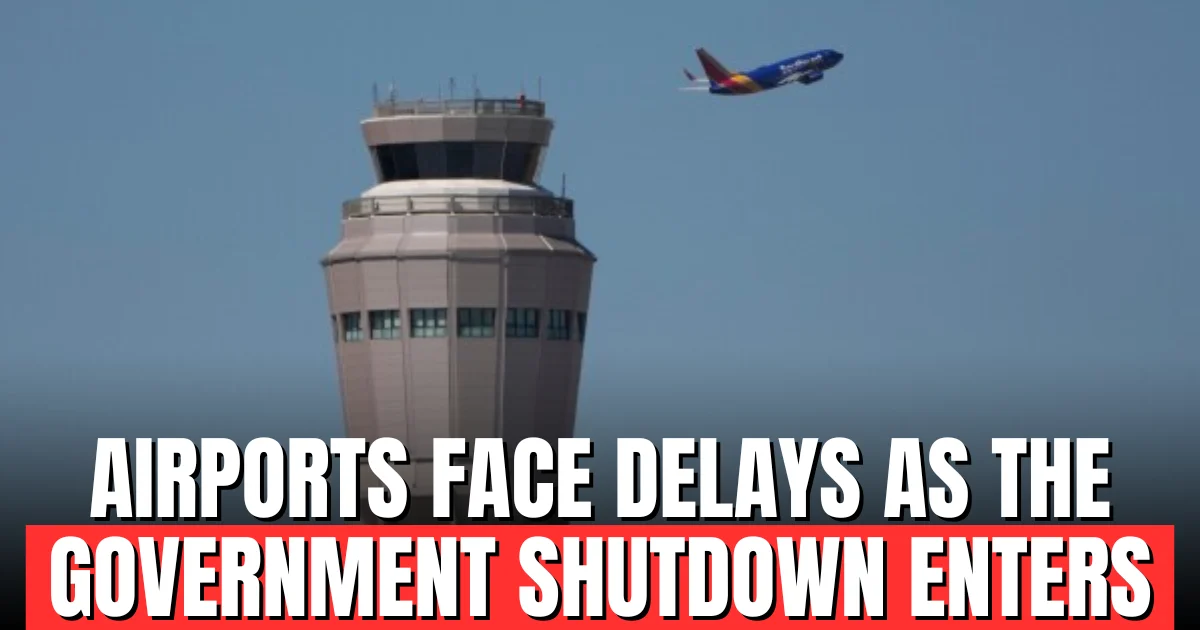Airports nationwide face delays as the government shutdown enters day seven. Learn which flights are impacted and how travelers are affected.
Table of Contents
Delays Spread to Major Airports as Government Shutdown Hits Day Seven
Air travelers across the United States are facing major flight delays as the federal government shutdown stretches into its seventh day. Air traffic controller shortages at key airports are causing disruptions nationwide, leaving travelers stranded and frustrated.
The Federal Aviation Administration (FAA) warns that without enough controllers in towers, flights will continue to face delays and operational challenges. Cities including Chicago, Nashville, Houston, Newark, Las Vegas, Boston, Atlanta, Philadelphia, and Dallas are among the most affected.
Staffing Shortages at Key Airports

Chicago’s O’Hare International Airport
- O’Hare, one of the busiest airports in the country with over 1,000 daily flights, is facing significant delays.
- On Tuesday evening, ground delays averaged 41 minutes due to insufficient air traffic controllers.
- The airport’s tower will operate without full staffing for nine hours, causing ripple effects across incoming and outgoing flights.
Nashville Airport Closure
- Nashville’s approach facility, which manages planes entering and leaving the airport, closed for five hours.
- Flights had to reroute through the regional air traffic control center in Memphis.
- Travelers faced average delays of two hours for incoming flights.
Other Affected Airports
- Houston (Hobby and George Bush Intercontinental): Expected ground delays due to staffing shortages.
- Newark, Las Vegas, Boston, Atlanta, Philadelphia, Dallas: Approach and departure facilities impacted for portions of the day.
Impact on Air Traffic Controllers
Air traffic controllers, like TSA officers, are deemed essential employees and must report to work despite the shutdown.
- Some are calling in sick due to stress and financial concerns, but organized strikes are illegal.
- Next payday: October 14, but controllers will only be paid for hours worked before the shutdown. First missed payday could be October 28.
- NATCA president Nick Daniels emphasizes the fragility of the air traffic system and highlights the stress controllers face daily.
“We are critically staffed with unreliable equipment…ensuring safety is our top priority,” Daniels said.
Pilots Take Control During Tower Closures

In Burbank, California, when controllers stayed home, pilots had to coordinate takeoffs and landings using a Common Traffic Advisory Frequency (CTAF).
- This system allows pilots to communicate directly, similar to general aviation rules at smaller airports.
- While manageable, it adds a margin of risk, highlighting the importance of fully staffed towers.
- About 37 flights took off and 33 landed during the nearly six-hour Burbank closure, causing 2.5+ hours of delay for some flights.
Why the Situation Is Worsening
- The Department of Transportation reports an uptick in unscheduled call-outs.
- Controllers are concerned about paychecks, mortgages, and daily expenses.
- Experts warn that even a small number of absences can trigger widespread delays due to tight staffing and outdated equipment.
How Travelers Can Cope with Delays
- Regularly monitor your flight updates using airline apps or official websites.
- Arrive early at airports affected by controller shortages.
- Monitor regional FAA updates for approach/departure changes.
- Have backup travel plans if delays extend beyond a few hours.
FAQs About Airport Delays During Government Shutdown
Q1: Why are airports experiencing delays during the shutdown?
A1: Staffing shortages in air traffic control towers due to the federal shutdown are causing flight delays nationwide.
Q2: Are air traffic controllers allowed to strike during a shutdown?
A2: No. Federal law prohibits strikes, though some employees may call in sick individually.
Q3: Which airports are most affected?
A3: O’Hare (Chicago), Nashville, Houston, Newark, Las Vegas, Boston, Atlanta, Philadelphia, and Dallas.
Q4: How can travelers minimize delays?
A4: Check flight status frequently, arrive early, and monitor FAA updates. Backup plans are recommended.
Q5: When will air traffic controllers receive their pay?
A5: They will be paid for hours worked before the shutdown; the next scheduled full payday could be delayed until October 28 if the shutdown continues.
Conclusion
The government shutdown’s impact on air travel is clear: major airports nationwide face delays, and both travelers and air traffic controllers are under pressure.
Travelers should plan ahead, monitor flights, and prepare for extended delays, while federal employees hope for a resolution to resume normal operations.

